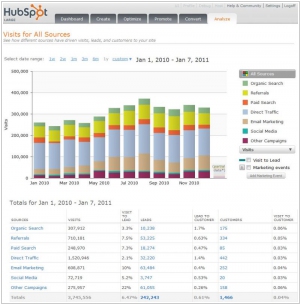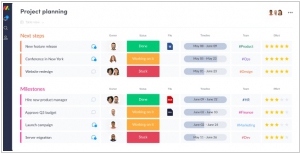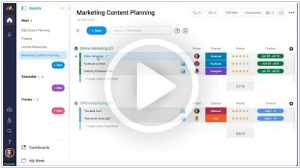HubSpot vs Monday.com
August 20, 2023 | Author: Sandeep Sharma
HubSpot and Monday.com are both popular software platforms, but they differ in their focus and functionality. HubSpot is an all-in-one inbound marketing, sales, and customer service platform that offers a range of tools for marketing automation, CRM, email marketing, content management, and more. It provides businesses with the ability to attract, engage, and delight customers throughout their entire journey. HubSpot is known for its user-friendly interface, extensive integrations, and comprehensive suite of marketing and sales features. On the other hand, Monday.com is a team collaboration and project management platform that enables teams to plan, track, and manage projects and tasks effectively. It offers features such as customizable workflows, task assignment, progress tracking, and team communication. Monday.com focuses on streamlining team collaboration and increasing productivity.
See also: Top 10 Online CRM software
See also: Top 10 Online CRM software
HubSpot vs Monday.com in our news:
2023. HubSpot unveils strategy to integrate AI across the platform
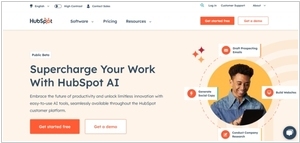
HubSpot, the marketing and CRM platform, has unveiled its comprehensive AI strategy known as HubSpot AI. While the incorporation of AI elements has been an ongoing effort for HubSpot and other enterprise SaaS vendors, the advent of technologies like ChatGPT has prompted HubSpot to adopt a more extensive approach while retaining earlier features. The CRM database stores valuable company data, enabling users to gain insights into customer profiles, encompassing basic information, purchase history, customer service interactions, and more. HubSpot AI encompasses a four-pronged strategy, starting with content assistants that assist users in generating various content types across the platform. Additionally, AI agents, currently in different development stages, aim to automate customer service tasks and answer queries. The third component, AI Insights, provides predictive analytics, such as identifying customers likely to churn or make a purchase, a capability integrated into the platform over time.
2022. monday.com introduces monday sales CRM
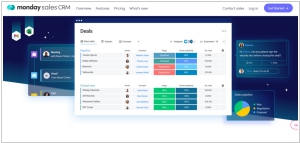
The renowned project management service, monday.com, has recently introduced monday sales CRM, a dynamic customer relationship management (CRM) system designed to streamline all customer-related processes within a single platform. Leveraging monday.com's flexible low-code/no-code framework, monday sales CRM offers a fully customizable CRM solution that empowers users to automate repetitive tasks, synchronize their Gmail/Outlook accounts for seamless email communication, and automatically log sent emails. Additionally, the CRM system provides real-time notifications when leads open or respond to emails, facilitates team quota tracking over time, allows for goal setting at both individual and team levels, centralizes post-sale activities for efficient client onboarding, project management, and collection tracking, streamlines the sales hiring process, and equips sales teams with the necessary tools and resources to enhance deal closure rates. The offering includes a free version for up to 2 seats, while the paid version starts at €10 per seat per month.
2020. HubSpot’s new end-to-end sales hub aims to simplify CRM for mid-market customers
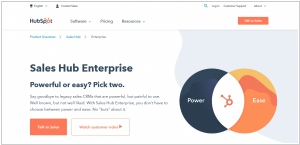
HubSpot, renowned for its role in shaping the concept of inbound marketing, has unveiled the HubSpot Sales Hub Enterprise. While the company has been providing a CRM tool for five years, which has successfully addressed the usability concerns of salespeople, the new offering aims to deliver a comprehensive approach that caters to the needs of not only sales professionals but also management and system administrators. HubSpot recognizes that larger players in the industry, such as Adobe, Salesforce, and SAP, typically acquire various components of the technology stack and integrate them into their solutions, or customers themselves piece together different elements. In contrast, HubSpot believes that developing a unified, integrated solution in-house will naturally result in a more user-friendly experience.
2020. HubSpot unveils new content management system for marketers
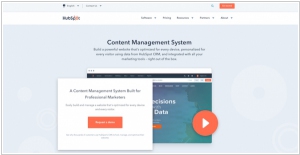
HubSpot, a renowned inbound marketing firm, has introduced a dedicated content management system (CMS) specifically designed to simplify the process of adding and updating content for marketing professionals. While content management has always been a fundamental aspect of HubSpot's offerings, this new CMS has been developed from scratch with marketers in mind. It provides developers with the flexibility to use their preferred programming languages while leveraging the modular structure of the HubSpot CMS. Simultaneously, the user-friendly interface empowers marketers to make frequent changes necessary for modern websites.
2020. Monday.com now lets companies build custom apps
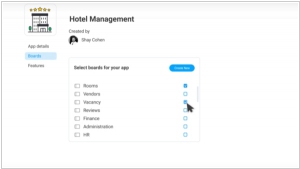
Monday.com has recently unveiled version 2.0 of its highly flexible workflow platform, introducing enhanced capabilities for customers to develop custom apps on the Monday platform. With this update, users are provided with a wealth of resources, including over a hundred prebuilt automation recipes and code-free custom automations. Additionally, the release features more than 50 integrations with various applications, empowering project managers to create sophisticated workflows without the need for coding expertise. Whether it's process management, portfolio management, project management, CRM management, hotel management, or R&D management, Monday.com offers a code-free environment that enables users to leverage these building blocks and craft tailored applications to fulfill the specific needs of any organization or team.
2019. Workplace collaboration software Monday.com raised $150M
Monday.com, a rapidly expanding workplace collaboration platform, has recently announced a remarkable $150 million funding round, valuing the company at $1.9 billion. This substantial investment reflects both the platform's current success and the immense potential within the broader collaboration space, particularly in the areas of enhanced team communication and team management. With a customer base now reaching 80,000 organizations, compared to just 35,000 a year ago, Monday.com serves a diverse range of industries spanning over 200 verticals. Notably, these organizations vary in size, with employee counts ranging from as few as two to as high as 4,000. The impressive clientele includes renowned companies such as Carlsberg, Discovery Channel, Philips, Hulu, WeWork, and numerous Fortune 500 firms. It's worth mentioning that Monday.com attracts both technical and non-technical companies that rely on software and computers to facilitate their work processes.
2018. HubSpot added customer service tools to its marketing platform
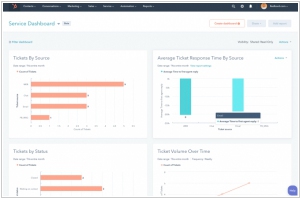
HubSpot is venturing beyond sales and marketing by officially introducing its Service Hub, a comprehensive solution for managing customer service. This expansion includes an all-in-one inbox for organizing all customer communications, a bot-builder to automate certain customer interactions, features for developing a company knowledge base (which can be utilized by the bot-builder), survey creation tools, and a dashboard for monitoring the performance of your service team. Service Hub is seamlessly integrated with HubSpot's existing products, enabling businesses to track customer interactions across sales, marketing, and support.
2017. HubSpot unveiled Conversations
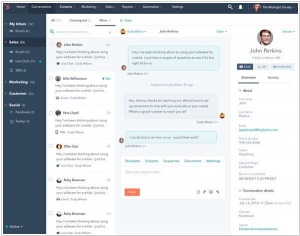
CRM, marketing, sales, and customer experience provider HubSpot has introduced a range of product updates, including notable integrations with Facebook for advertising purposes, Shopify for ecommerce functionalities, and the introduction of a new tool called "Conversations." The Conversations tool, facilitated by chatbots, consolidates customer messages into a single inbox, representing the evolution of HubSpot's live chat platform. This unified messaging system becomes crucial during significant transitions, such as the handoff from sales to support. Key features of Conversations include seamless integration with HubSpot CRM and the ability to create chatbots, leveraging the technology obtained from HubSpot's recent acquisition of the chatbot platform, Motion AI. These updates aim to enhance customer interactions and streamline communication processes within the HubSpot platform.
2017. Marketing platform HubSpot acquires AI startup Kemvi
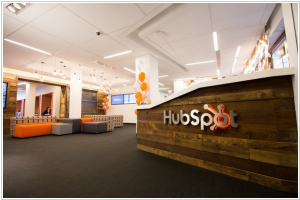
Inbound marketing and sales platform HubSpot has made an acquisition of Kemvi, a startup that utilizes artificial intelligence and machine learning to assist sales teams. A short while ago, Kemvi introduced DeepGraph, a product that examines public data to enable salespeople in identifying the optimal time (such as after a job transition or the release of an article) to connect with potential customers. Additionally, it takes proactive measures to verify leads. HubSpot was actively seeking innovative ways to incorporate AI technology into its platform as a means to combat competitors. The acquisition of Kemvi was especially attractive to HubSpot due to its ability to address a genuine requirement among salespeople.
2015. HubSpot launches own CRM system
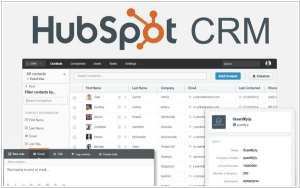
HubSpot, a renowned company recognized for its marketing tools, has officially launched its CRM product, moving it out of the beta phase. The CRM tool is available for free, while HubSpot's sales "acceleration" tool, Sidekick, is priced at $50 per seat per month. HubSpot describes the CRM tool as designed to assist sales representatives in minimizing the tedious aspects of data entry and interaction management. The tool automatically captures data from the sales process and organizes it in a chronological format. This strategy of providing free software to companies and subsequently upselling their IT departments has proven successful for software companies like Dropbox and Box. Although there are still costs associated with the sales process, having products integrated into more businesses helps reduce certain barriers.

